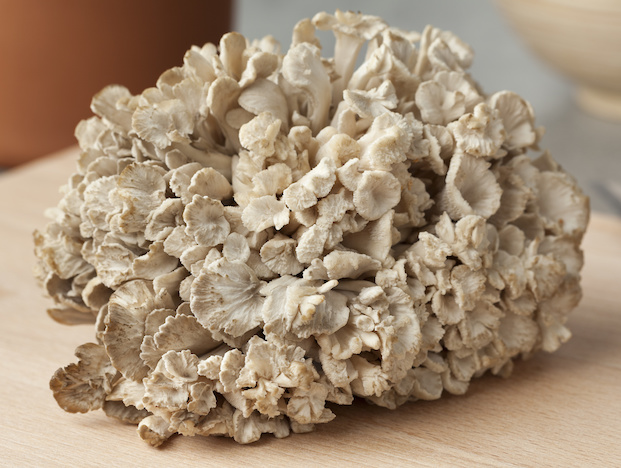 As the warm summer months fade into the bright colors of autumn, the earth gets ready for the cold sleep of winter. This change signals the impending arrival of cold and flu season and the time when you should start thinking about making sure your immune system is ready.
As the warm summer months fade into the bright colors of autumn, the earth gets ready for the cold sleep of winter. This change signals the impending arrival of cold and flu season and the time when you should start thinking about making sure your immune system is ready.
There are several possible reasons why people are more prone to catching colds, flu, and other viral infections in the winter. First, heat tends to inhibit viruses, which is why the body often generates a fever to fight them. Second, people have less exposure to sunlight, which means they have lower levels of vitamin D3, a nutrient very important for fighting viruses. Another possible reason is that people eat fewer fresh fruits and vegetables in winter, which means they get less vitamin C.
Whatever the reason, it makes sense to fortify your body in preparation for winter so you can reduce your chance of getting sick. Think of it like winterizing your home or car, except that it’s your body you are winterizing. Here are a few tips for preparing your immune system and staying healthy this winter.
Vitamin D3
Vitamin D3 is formed in the skin from cholesterol upon exposure to sunlight. It is an extremely important nutrient for the immune system, especially when it comes to fighting viruses. Vitamin D is probably the most common vitamin deficiency in the world, especially among the elderly who are more prone to influenza than the rest of the population.
Vitamin D3 is essential for innate immunity, your first line of defense against disease. It also helps reduce inflammatory cytokines, which help protect the lining of the lungs and other tissues from overreacting to viral infection. I personally take Vitamin D3 every day during the winter. A good dose is at least 1000 IU (25 mcg), but many people do well with double or triple that dose.
 Vitamin C
Vitamin C
Unlike most mammals, human beings can’t synthesize their own vitamin C and unless you’re eating a lot of fresh fruits and vegetables, you’re probably not getting enough. The other mammals who can’t make their own vitamin C live primarily on fruits and vegetation.
Vitamin C has long been touted as a preventative remedy for viruses. It increases levels of interferon, which the body uses to fight viral infections. Having higher levels of vitamin C helps prevent influenza from turning into pneumonia, which often happens in older people. Besides trying to eat fresh fruits and other vitamin C rich foods, I often take extra vitamin C.
Although most people benefit from around 1,000 to 2,000 mg. a day, it’s best to divide the dose and take 300 to 500 milligrams three times per day. A vitamin C with extra bioflavonoids is especially helpful. In addition, rosehip and pine needle tea were used traditionally as natural sources of wintertime vitamin C to ward off disease.
Zinc
Zinc is an important for a healthy immune system. It aids the function of white blood cells, helps to reduce inflammation and inhibit viral replication. Zinc also helps with hair color, so greying hair can be a sign of zinc deficiency.
Unfortunately, zinc deficiency is widespread, especially in the elderly. This may be partially due to the fact that it takes hydrochloric acid (HCl) in the stomach to absorb zinc and HCl levels tend to decline with age.
Quinine, an alkaloid from Cinchona bark, which helps with the absorption of zinc was used for many years to inhibit malaria and was replaced by hydroxychloroquine. You can still get quinine from tonic water at any grocery store and drink a little with the zinc you take to help it work better. If you have digestive problems, you may also wish to take an HCl supplement with the zinc. Zinc also aids the production of HCl, so it will help you increase your own HCl production, too.
The amount of zinc you need is about 10-15 mg. per day. Men need more than women and can tolerate 15-25 mg. per day. Children need less. If you’re taking a 25 mg. tablet you might wish to take one every other day. You can also suck on zinc lozenges with vitamin C, which helps to shorten the duration of colds. Too much zinc can be a problem so make sure to stick to the recommended amounts.
Medicinal Fungi
 Mushrooms help boost the immune system via immune-stimulating polysaccharides. I've found that taking cordyceps during the winter months helps my immune system as well as my overall health. Cordyceps is a tonic for the respiratory system, so it is particularly helpful for people like me with a history of respiratory problems.
Mushrooms help boost the immune system via immune-stimulating polysaccharides. I've found that taking cordyceps during the winter months helps my immune system as well as my overall health. Cordyceps is a tonic for the respiratory system, so it is particularly helpful for people like me with a history of respiratory problems.
Maitake and reishi are two additional medicinal mushrooms to use during the winter to fortify your immune system. They contain beta-D-glucan which activates the macrophages in the innate immune system. Even white button mushrooms have some immune-enhancing activity, so a blend of several species of mushroom may be helpful if you tend to have a weaker immune system.
One or two capsules of cordyceps each day during the winter or a spoonful of a powdered extract of various mushrooms like cordyceps, reishi, and maitake can boost your immune system during the winter and help you stay healthy. Besides supporting immunity, mushrooms also help with cholesterol, nerves and overall health.
Astragalus
The Chinese use astragalus as a poor man’s ginseng to fortify the entire body. It is especially helpful during the wintertime, particularly where the air is cold and dry. It strengthens the lungs and helps activate the macrophages in the innate immune system. It reduces inflammation and is especially helpful for preventing colds and flu.
The Chinese cooked rice with astragalus or added it to other foods to fortify them. You can also take it in capsule form. Two capsules twice a day is a good dose for adults. I've also used it as part of a Chinese metal-increasing formula to strengthen the lungs during the winter months.
Overall Health and Happiness
With all the stress placed on trying to avoid exposure to germs or killing them, people often forget that a large part of preventing contagious disease is maintaining overall good health and a strong immune system. The better attention you pay to overall health, including diet, exercise, sleep and mental attitude, the greater your ability to resist infection. So, if you’re concerned about your health this winter, start by avoiding junk food, eating more natural food, and taking a multi-vitamin and mineral supplement that includes the nutrients mentioned above.
This will help you adopt a positive mental attitude. You can honestly tell yourself that you’re taking good care of your body and you are going to stay healthy. Worry and stress reduce your immune response, while laughter, happiness, and a positive attitude about life boost your immune system. So follow the advice from Bobby McFerrin in the title of his song, “Don’t worry, be happy.” If you want an amusing blast from the past you can watch the music video NSP's staff made in 1988. Maybe you'll even spot my appearance in it.
I hope these tips will help you stay worry-free and healthy this winter.
Steven's Articles
-

-
Eucommia Bark
A superior tonic that promotes kidney, structural,…
January
-

-
Goldenthread, Phellodendron, and Yellow Root
Three herbal remedies containing the infection-fighting…
-

-
Teasel
A traditional herb for healing bones and joints…
-

-
Barberry and Healthy Personal Boundaries
A thorny shrub for fighting infections and supporting…
December
-

-
The Evidence for Berberine
A yellow alkaloid found in traditional infection-fighting…
-

-
The Sensible Use of Caffeinated Herbs
Kola nuts, guarana, and yerba mate and other herbs…
-

-
The Health Benefits and Problems with Coffee
This popular caffeinated beverage can be beneficial…
October
-

-
Understanding Caffeine & Cellular Adaptation
Preserving the power of caffeine's buzz and the…
September
-

-
Horseradish
A pungent spice for aiding protein metabolism…
-

-
Banaba or Crepe Myrtle
A beautiful tree from Southeast Asia whose leaves…
August
-

-
Monkeyflowers
Flower essences to help see ourselves more clearly…
-

-
Mariposa Lilies
Strengthening the bond between mother and child…
-

-
The Noble Bay Leaf
A common kitchen herb for aiding digestion and…
-

-
Epimedium: Horny Goat Weed
A circulatory stimulant and kidney yang tonic…
July
-

-
The Medicinal and Nutritional Benefits of Apricots
A nutritious fruit and valuable medicinal seed for coughs

